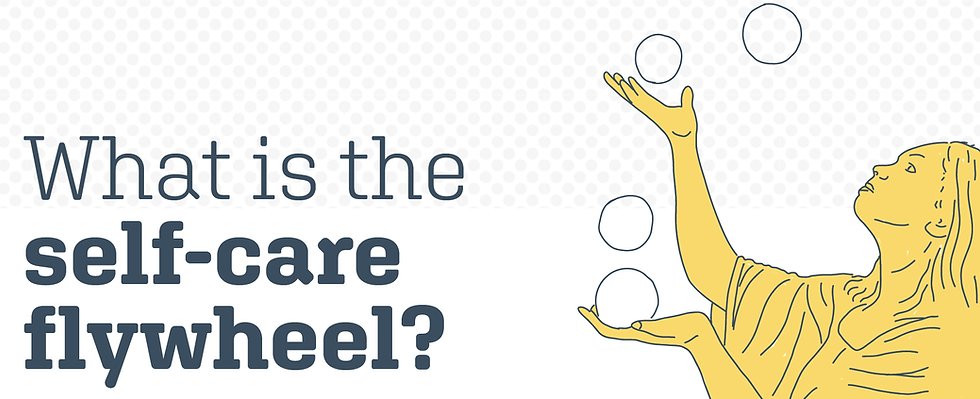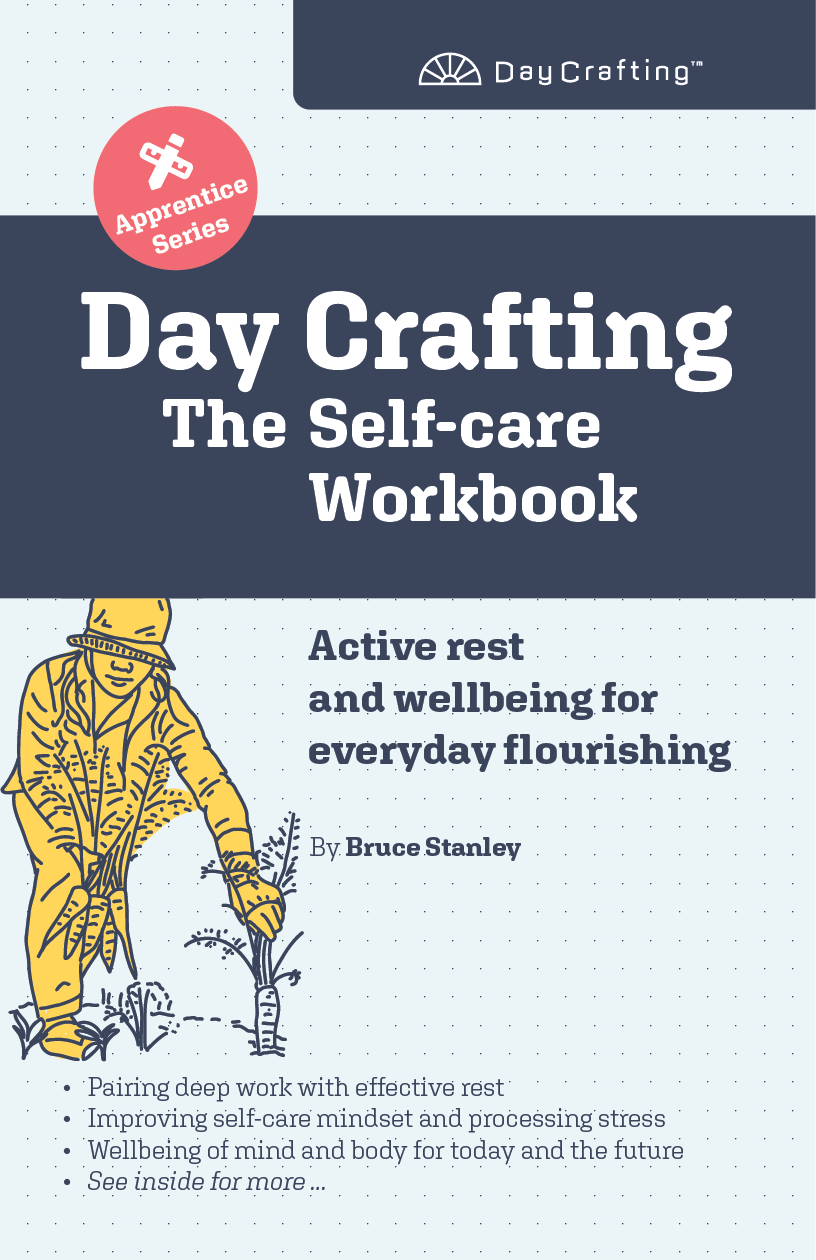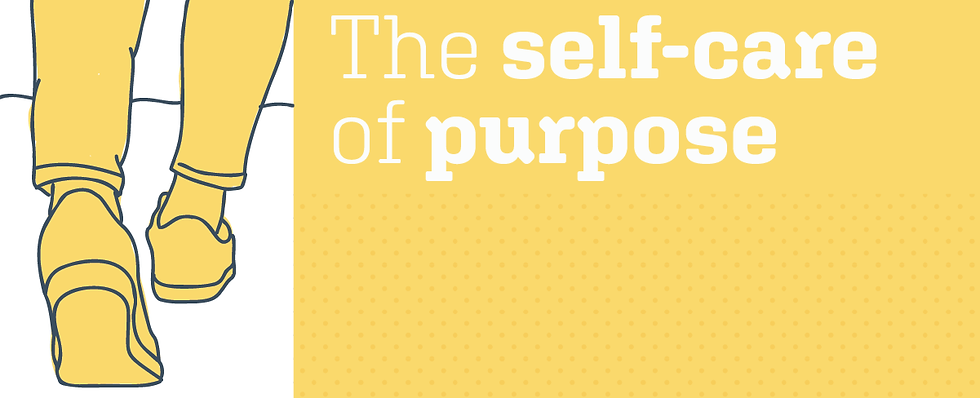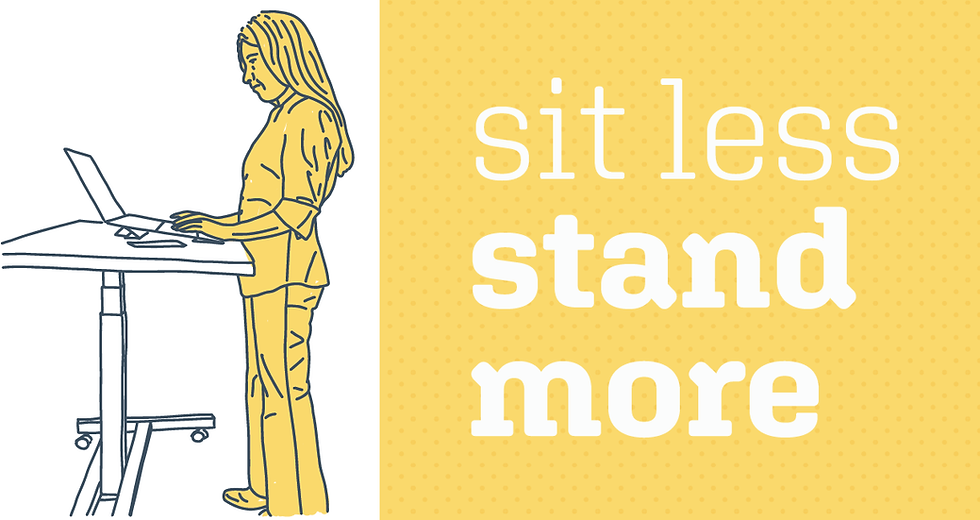Sleep, Eat, Move, Rest: Crafting Your Daily Blueprint
- Bruce Stanley

- Mar 30, 2023
- 3 min read
Updated: Jul 23, 2025
Under the heading of maintenance (how we look after ourselves in a day), our four most important actions are sleep, eat, move, rest. This week, I have been writing about how these four elements interrelate after exploring each individually. I have been expanding a diagram that shows how they influence each other—and related topics such as energy, productivity, stress, immunity, and subjective well-being. It is perhaps no surprise that sleep has the most connections on the diagram. (The diagram is found in the Self-care Workbook).

For example, poor sleep can impair our emotional self-regulation and disrupt the production of leptin and ghrelin, two hormones that send us signals about our appetite and food choices. We may crave high-calorie, high-fat foods more easily and find it harder to recognise when we're full. Poor sleep can also cause changes in metabolism, including decreased glucose tolerance and insulin sensitivity.
The Interplay of Sleep, Eat, Move, Rest: A Holistic Approach to Well-being
Exploring how the opposite direction of the arrows indicates, nutrition can influence sleep – caffeine (found in coffee, tea, dark chocolate) being a clear example. Less familiar, I believe, is that our immune function doesn't regenerate as effectively during sleep if alcohol is present in our system. Alcohol can also interfere with the natural sleep cycle, causing reduced REM sleep and more wakefulness during the night. Some research suggests that sleep quality can be enhanced by digesting certain nutrients. Carbohydrates can boost the level of tryptophan, an amino acid that is a precursor to the sleep hormone melatonin.
Furthermore, moderate intake of protein-rich foods can aid in the production of serotonin, a neurotransmitter that promotes relaxation and well-being. Chamomile tea is also widely recognised for its calming effects on many individuals. Returning to the bigger picture, consider incorporating exercise and rest, and explore the connections between these four elements and the related topics that emerge from them.
This is clearly a whole-system approach which, if you're already inclined this way, might be easy; but if you're busy and have complex days, it requires some strategic planning to start improving. Central to this is a maintenance blueprint that aligns with your body clock (a workbook on this is available) and a routine, with set times for activities such as meals and sleep.
Integrating Self-Care Habits: The Synergy of Daily Maintenance Actions
The point I'm exploring – and this may be quite advanced Day Crafting for some people or simply obvious to others – is that establishing good maintenance habits in a day involves a combination of all four of these actions. Moreover, if we notice issues with our maintenance, such as low energy, we might find the problem lies in the connection between these actions rather than in any one action itself. For example, eating the right meal at the wrong time can negatively impact sleep (like a large meal too late) – this is a body-clock issue, not necessarily a sleep or nutrition problem.
A couple of personal reflections.
I believe the advantages of spinning this flywheel up to speed (getting the sleep, eat, move, rest balls flying) are significant and not hard to achieve. It begins with a bit of design thinking and some minor adjustments. This is one of those small efforts that yield large benefits, which often appear in Day Crafting. Another observation is that if you're anything like me, you can be misled by lagging measures. If you've sacrificed sleep and rest, you'll notice it quickly (sleep is a lead measure), but aspects like exercise and nutrition are lagging, long-term measures, and I find it easy to neglect nutrition. That's my personal challenge. What's yours?
The Practice
Questions
How can you design a daily routine that prioritises all four elements of self-care?
How can you maximise their interrelationships?
Do you struggle with one of these self-care elements and how can you use the others (and Day Crafting) to strengthen it?
How does your day, energy, productivity fall apart if you let one of these slide?
Which do you find most easy to overlook?









Comments